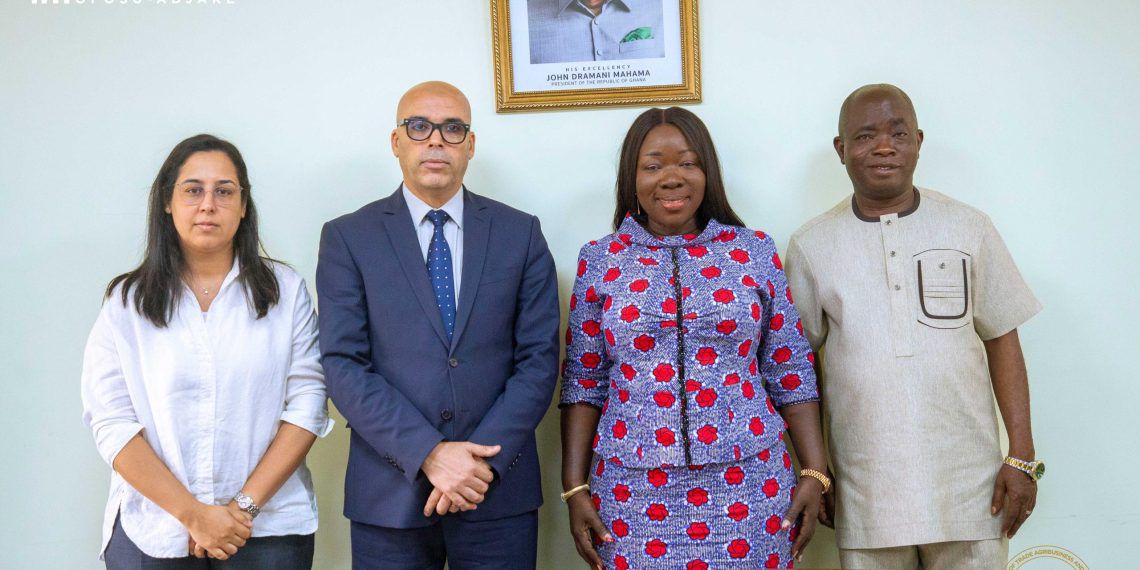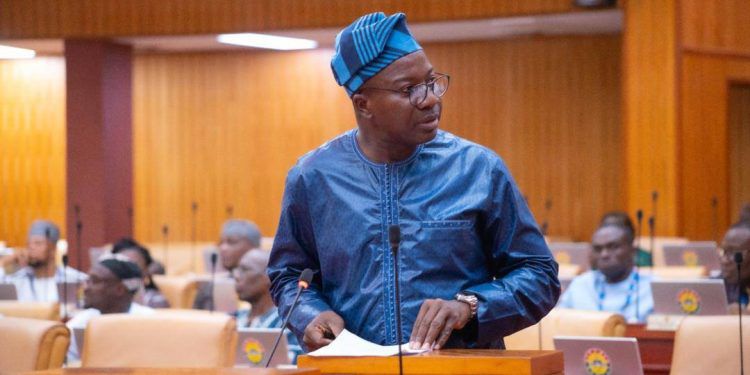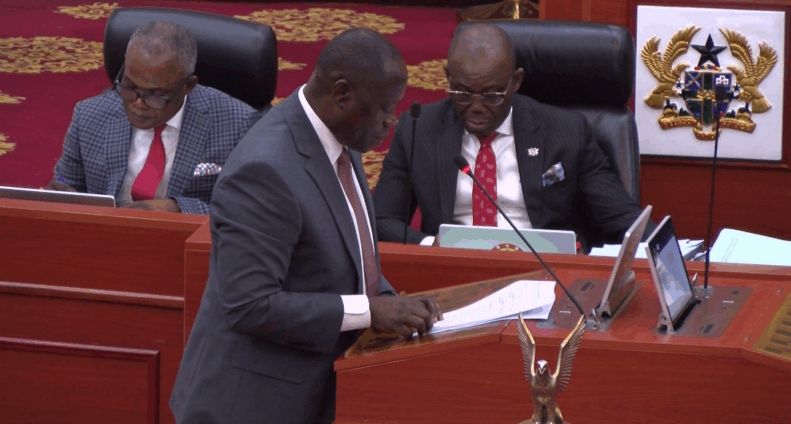Ghana and Morocco are deepening bilateral ties in trade, agribusiness, and industrial development, following high-level discussions between Ghana’s Ministry of Trade, Agribusiness and Industry and a visiting Moroccan delegation.
The delegation, led by H.E. Abderrahim Cherrab, Deputy Head of Mission at the Moroccan Embassy in Ghana, met with Trade Minister Elizabeth Ofosu-Adjare in Accra on Tuesday to explore strategic investment opportunities and partnerships.
Minister Ofosu-Adjare underscored Ghana’s favourable investment climate, highlighting key advantages such as tax incentives, low logistics costs, and robust government support for local industries. She encouraged Moroccan investment in key sectors including fertilizer production, electric vehicle (EV) assembly, and commercial agriculture.
“Ghana is prepared to serve as the manufacturing hub of West Africa. We welcome Morocco’s strength in agribusiness and industrial development,” she stated, adding that Ghana is prioritizing climate-smart agriculture and contract farming models to ensure raw material security.
She further proposed aligning trade standards between the two countries and positioning Ghana as a regional base for Morocco’s automotive initiatives.
Responding to the call, H.E. Cherrab expressed Morocco’s commitment to supporting Ghana’s food security agenda. He announced plans for a 2,000-ton fertilizer shipment and the deployment of a diagnostic mission to assess Ghana’s agricultural systems.
“We face similar challenges—low soil fertility, post-harvest losses, and heavy dependence on primary agriculture. Morocco is ready to collaborate with Ghana through South-South cooperation and shared best practices,” he said.
The delegation included representatives from the Moroccan Agency for International Cooperation, national research institutions, and technical universities. Talks also focused on revitalising a 2015 Memorandum of Understanding aimed at aligning regulations and facilitating mutual investment.
Both sides agreed to expedite the formation of a joint commercial committee and advance discussions on trade harmonisation, industrial cooperation, and agribusiness development.
“This visit marks the beginning of a new era of hands-on collaboration—especially in food systems and manufacturing,” H.E. Cherrab concluded.













